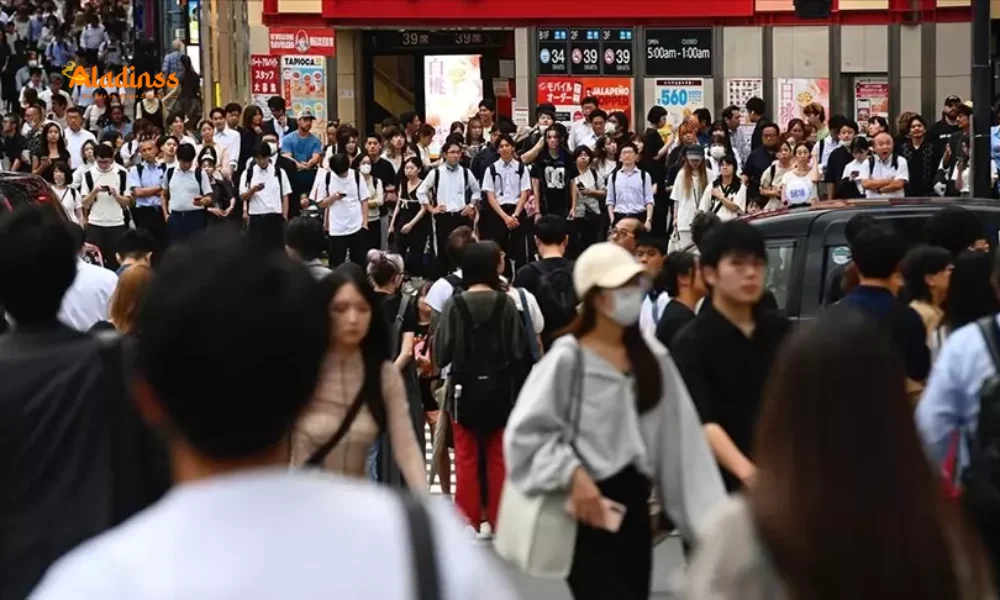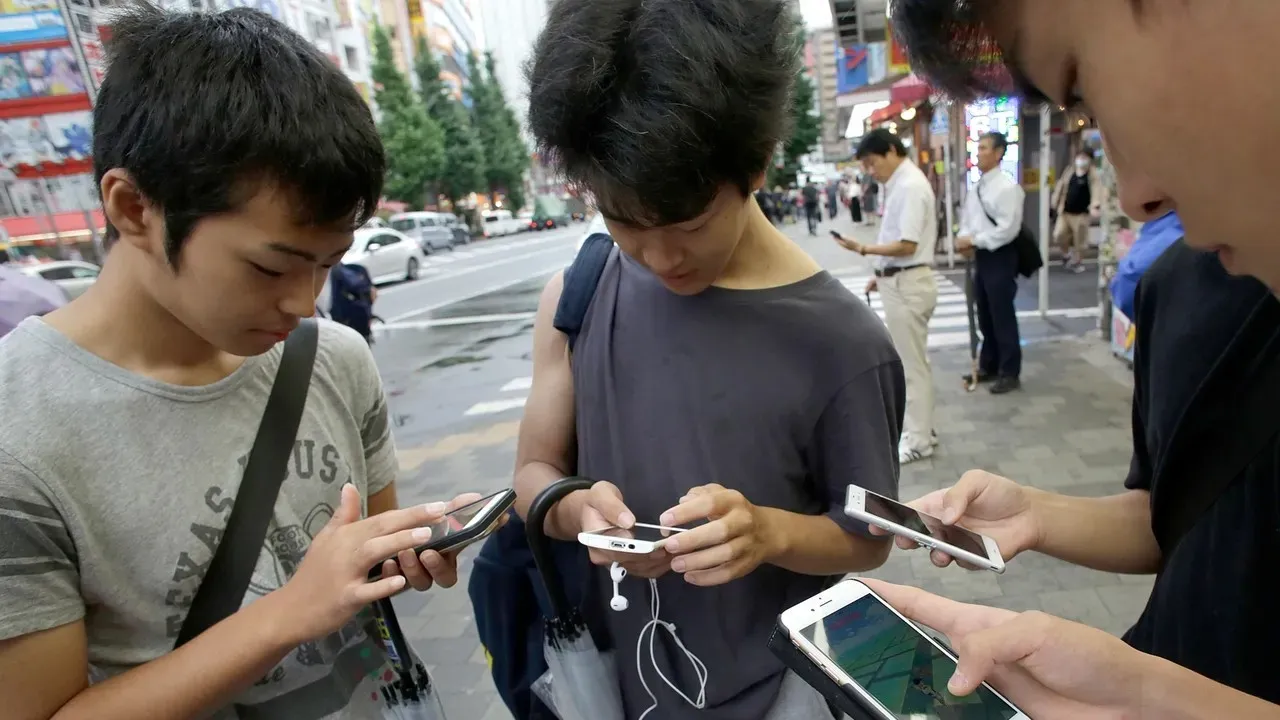Japan’s Toyoake Proposes Two-Hour Smartphone Limit

Japanese Town Proposes Two-Hour Daily Smartphone Limit for Residents
In a groundbreaking move, the Japanese town of Toyoake in Aichi Prefecture has proposed a non-binding ordinance to limit smartphone use to two hours per day for all its 69,000 residents, sparking intense debate over device addiction and personal freedom. Submitted by the Toyoake municipal government on August 25, 2025, the proposal aims to encourage residents to manage their screen time outside of work and study hours, with no penalties for non-compliance. Described as a guideline to foster discussion, the initiative has drawn both support and criticism, with many residents questioning its practicality. This article explores the details of the proposal, its implications, public reactions, and the broader context of smartphone addiction in Japan.
Toyoake’s Mayor Masafumi Koki emphasized that the two-hour limit is not mandatory but intended to prompt families to reflect on their smartphone usage. The ordinance, set for a vote in late September 2025 and potential implementation in October, excludes activities like online learning and e-sports practice from the time restriction. With Japanese youth spending over five hours daily online, according to a March 2025 survey by the Children and Families Agency, the proposal addresses growing concerns about truancy, sleep deprivation, and diminished family time. However, the plan has faced significant backlash, with 80% of resident feedback during a consultation period opposing the measure, highlighting tensions between public health goals and individual autonomy.
Details of the Toyoake Smartphone Proposal
The proposed ordinance in Toyoake, believed to be Japan’s first municipal attempt to cap smartphone use for all residents, recommends limiting leisure-related screen time to two hours daily. Mayor Masafumi Koki clarified that the guideline applies only to non-essential activities, such as social media scrolling or gaming, and excludes necessary uses like work, studying, or watching videos while cooking or exercising. The draft urges primary school students (ages 6–12) to stop using smartphones by 9:00 PM, while teenagers and adults are encouraged to disconnect by 10:00 PM to promote healthy sleep patterns.
In a statement on August 22, 2025, Koki emphasized that the proposal does not infringe on residents’ rights or impose obligations. “The two-hour limit is merely a guideline to encourage citizens,” he said, adding, “I hope this serves as an opportunity for each family to think about and discuss the time spent on smartphones.” The non-binding nature of the ordinance means there are no fines or legal repercussions for exceeding the limit, positioning it as a public awareness campaign rather than a strict regulation. If approved, the ordinance will take effect on October 1, 2025, following deliberations by the Toyoake municipal assembly.
Rationale Behind the Initiative
The Toyoake proposal stems from growing concerns about the impact of excessive smartphone use on mental and physical health. Mayor Koki highlighted troubling trends, such as students missing school due to reluctance to part with their devices and adults sacrificing sleep or family time to scroll on phones and tablets. A March 2025 survey by Japan’s Children and Families Agency found that Japanese youth spend an average of 5.1 hours online daily on weekdays, contributing to issues like sleep deprivation and social isolation. These findings echo global concerns about digital addiction, particularly among younger generations.
Koki acknowledged the indispensable role of smartphones in daily life, noting their utility for communication, education, and entertainment. However, he argued that unchecked usage during leisure hours poses risks to well-being. The ordinance aims to address these issues by encouraging residents to adopt mindful habits, such as setting designated “no-phone” times. By targeting all age groups, Toyoake’s initiative is unique in its scope, differing from previous regional efforts like Kagawa Prefecture’s 2020 ordinance, which limited children’s gaming to one hour on weekdays and 90 minutes on holidays.
Public Reaction and Backlash
The proposal has sparked significant controversy, with over 120 residents contacting Toyoake authorities during a four-day consultation period, according to the Mainichi Shimbun. Approximately 80% of the feedback, including 83 phone calls and 44 emails, expressed opposition, citing concerns about practicality and personal freedom. Social media platforms like X have been abuzz with criticism, with one user quoted in the Japan Times stating, “I understand their intention, but the two-hour limit is impossible. You cannot even read a book or watch a movie in two hours.” Others argued that smartphone use should remain a family decision, not a municipal guideline.
Despite the backlash, some residents support the initiative, viewing it as a step toward addressing digital addiction. A local parent, quoted anonymously by Kyodo News, praised the proposal for encouraging healthier habits among children. However, critics argue that the two-hour cap is unrealistic in a digital age where smartphones are integral to daily tasks. The debate has highlighted a generational divide, with younger residents and tech-savvy adults decrying the limit as an overreach, while some older community members see it as a necessary intervention to curb excessive screen time.
Broader Context of Smartphone Addiction in Japan
Toyoake’s proposal is part of a growing movement in Japan to address smartphone and gaming addiction, particularly among youth. The country has seen a surge in screen time since the COVID-19 pandemic, with children and teenagers increasingly reliant on devices for entertainment and social interaction. The 2020 Kagawa ordinance, which restricted children’s gaming time, set a precedent for local governments to tackle digital overuse, though it faced similar criticism for being unenforceable. Nationally, Japan’s Ministry of Education has reported rising cases of truancy linked to device addiction, with some students refusing to attend school without their phones.
Globally, similar efforts to curb smartphone use have emerged, with countries like China implementing strict limits on children’s gaming time. A 2023 study by the Pew Research Center found that 46% of teens worldwide feel anxious without their smartphones, underscoring the universal challenge of digital dependency. In Japan, where cultural emphasis on discipline and community well-being shapes policy, Toyoake’s initiative reflects a broader push for balance in an increasingly connected world. The ordinance’s focus on family discussions aligns with Japan’s collectivist values, prioritizing communal responsibility over individual mandates.

Implications for Toyoake and Beyond
If passed, Toyoake’s ordinance could set a precedent for other Japanese municipalities grappling with smartphone addiction. The non-binding nature of the proposal may limit its immediate impact, but its symbolic weight as Japan’s first universal screen-time guideline is significant. Supporters argue that it could inspire schools and families to adopt voluntary restrictions, fostering healthier digital habits. Critics, however, warn that the guideline’s vagueness and lack of enforcement mechanisms may render it ineffective, potentially undermining public trust in local governance.
The proposal also raises questions about the balance between public health initiatives and personal autonomy. In a country known for its technological innovation, restricting smartphone use, even voluntarily, has sparked debates about feasibility in a digital-first society. Toyoake’s small size and community-oriented culture may make it an ideal testing ground for such a policy, but scaling it to larger cities like Tokyo or Osaka could prove challenging. The ordinance’s success will likely depend on public buy-in and the municipal government’s ability to promote awareness without alienating residents.
Public Health and Digital Wellness
The Toyoake initiative aligns with global efforts to address the mental and physical health impacts of excessive screen time. Studies have linked prolonged smartphone use to issues like anxiety, depression, and disrupted sleep, particularly among children and adolescents. In Japan, where academic pressure and social expectations are high, excessive device use can exacerbate stress and contribute to social withdrawal, a phenomenon known as "hikikomori." By setting specific bedtime restrictions—9:00 PM for primary school students and 10:00 PM for others—the ordinance aims to ensure adequate rest, a critical factor in youth development.
Public health experts have praised Toyoake’s focus on family dialogue, noting that parental involvement is key to managing screen time effectively. However, they also caution that without clear guidelines on implementation, the ordinance risks being perceived as symbolic rather than practical. Community programs, such as workshops on digital wellness or school-based campaigns, could bolster the initiative’s impact. As Toyoake navigates this uncharted territory, its experience could inform national policies on digital health, potentially shaping Japan’s approach to technology in the years ahead.
Social Media and Global Perspectives
The proposal has generated significant buzz on social media, particularly on X, where users have debated its merits and feasibility. Posts reflect a mix of frustration and cautious support, with some calling the two-hour limit “unrealistic” and others applauding the effort to address addiction. “It’s a good idea in theory, but two hours is too restrictive,” one user wrote, echoing a common sentiment. The global resonance of the issue is evident, as similar debates unfold in countries like South Korea and Australia, where governments have explored screen-time regulations for youth.
Toyoake’s initiative has also drawn attention from international media, with outlets like the BBC and The Guardian framing it as part of a broader push against digital addiction. The proposal’s emphasis on voluntary compliance aligns with Japan’s preference for soft interventions over punitive measures, contrasting with stricter regulations in places like China. As the world grapples with the challenges of a hyper-connected era, Toyoake’s experiment could offer valuable lessons on balancing technology’s benefits with its risks, particularly in fostering community-driven solutions to a global problem.
Comment / Reply From
No comments yet. Be the first to comment!











